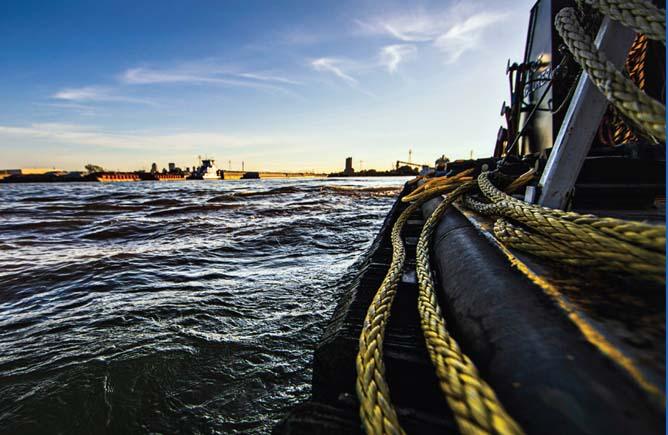
Our safety journey has been guided by members’ visionary safety leadership, highlighted by the AWO Responsible Carrier Program (RCP), the Coast Guard-AWO Safety Partnership, and development of a federal safety inspection regime for towing vessels at 46 CFR Subchapter M. The RCP is a safety management system for tugboat, towboat, and barge companies that is accepted by the U.S. Coast Guard as a Towing Safety Management System under Subchapter M. All AWO member companies comply with the RCP or an equivalent SMS as part of AWO’s foundational commitment to safety. The Coast Guard-AWO Safety Partnership is a first-of-its-kind public-private partnership to improve safety and environmental protection and strengthen the relationship between the Coast Guard and industry. This partnership was the foundation for nearly 20 years of close collaboration that led to Subchapter M, which raised the bar for safety across the entire tugboat, towboat and barge industry.
AWO is also committed to providing members with the tools and resources to ensure our industry is prepared for the safety and sustainability challenges of tomorrow. We will continue to set high expectations for ourselves by measuring our safety progress, including through our Safety Statistics Reporting Program, and prepare for the future through forward-facing initiatives, like our Environmental Stewardship Best Practices.
If you have any questions or would like to learn more about AWO’s Safety and Sustainability work, please contact the AWO Safety Department.
Which Mode is the Safest?
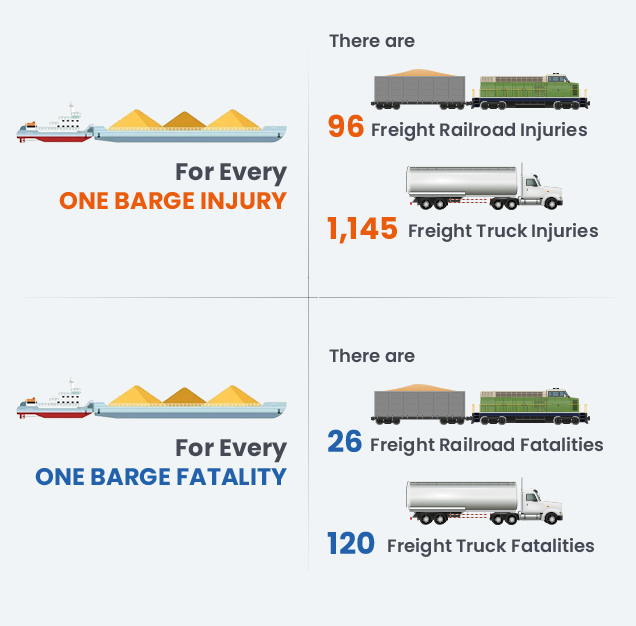
More Efficient
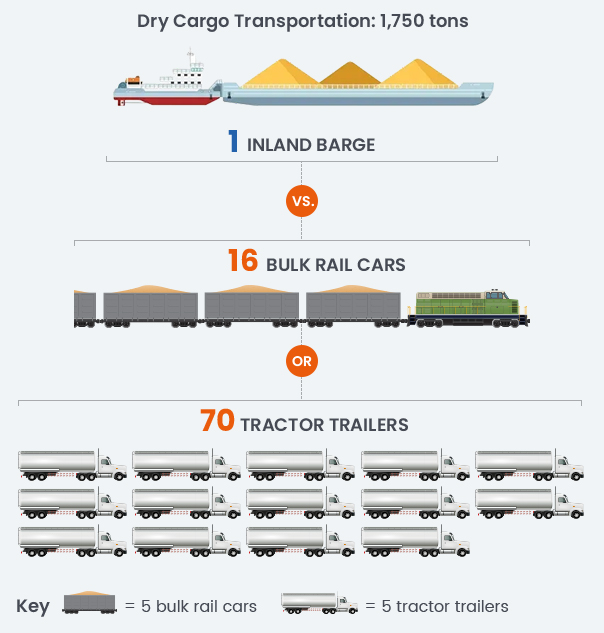
Subchapter M
The U.S. Coast Guard’s establishment of an inspection regime for towing vessels at 46 CFR Subchapter M is taking safety in the towing industry to a new and historic level by setting minimum safety standards for towing vessels, incorporating and building on the safeguards that AWO members have already put in place to ensure that the entire industry achieves the level of safety that is necessary to protect lives, the environment and property.
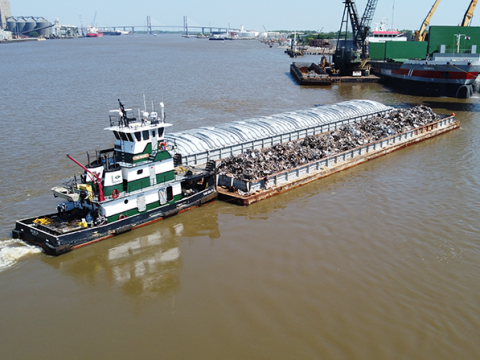
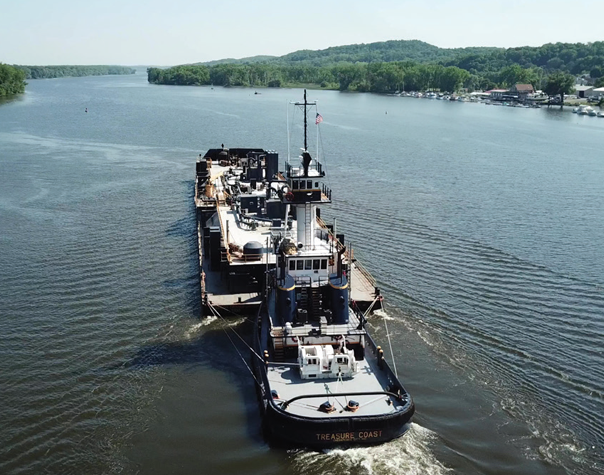
AWO Safety Statistics Reporting Program
The AWO Safety Statistics Reporting Program enables companies to confidentially report man-hours, fatalities, falls overboard, recordable and lost time injuries, and spills to water for vessels in the coastal and coastal harbor, inland, and inland fleeting sectors through a user-friendly web interface. Statistics are reported quarterly and company-specific data is strictly confidential.
Coast Guard-AWO Safety PartnershIp
Established in 1995, the Coast Guard-AWO Safety Partnership is the oldest public-private partnership between the U.S. Coast Guard and its stakeholders. The Safety Partnership’s mission is to improve vessel and personnel safety within the barge and towing industry, enhance the protection of the environment along our nation’s waterways, and strengthen the communication and working relationship between the Coast Guard and the barge and towing industry.
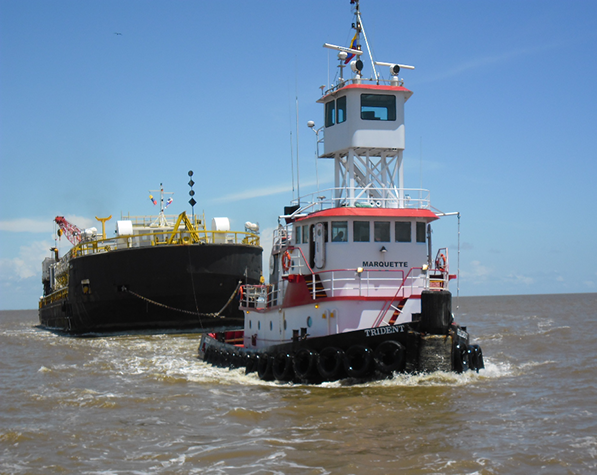
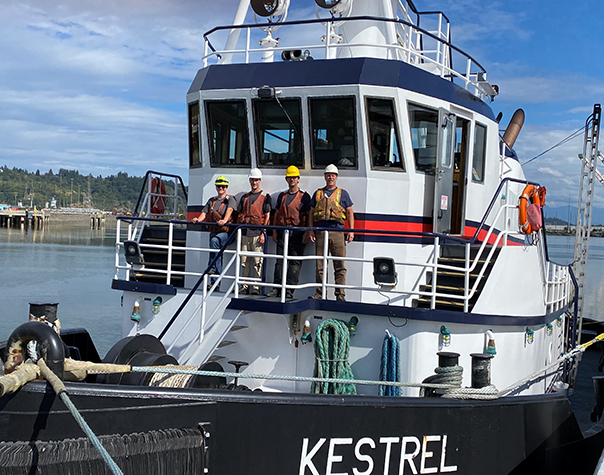
Responsible Carrier Program
The Responsible Carrier Program (RCP) is a Coast Guard-accepted safety management system developed by the tugboat and towboat industry based on the experience of its operators themselves. The RCP defines the principles of safe operation and provides a framework for AWO members to use in developing safety programs that suit their company and its operations – no matter its sector or size – while also driving continuous improvement of industry safety and sustainability.
Download
Environmental Stewardship
Best Practices

